Upgrading the stock market from frontier to emerging is opening up great expectations for attracting international capital flows and raising Vietnam's financial position. However, this is not just a "sprint race" but a long-term journey, requiring synchronous efforts from institutions, technology to business behavior.
In an interview with reporters, Ms. Pham Thi Thuy Linh, Head of the Securities Market Development Department, State Securities Commission, shared a lot of important information about the preparation and development orientation of the market in the current period.
- Madam, the upgrading of Vietnam's stock market is highly anticipated. How do you assess the significance of this process for the economy and financial market?
Ms. Pham Thi Thuy Linh: Upgrading the stock market is not only the goal of the financial sector but also a strategic step to enhance Vietnam's position and competitiveness in the region and the world . When upgraded to an emerging market, we will have the opportunity to access high-quality medium- and long-term capital flows, including both passive and active investment funds.
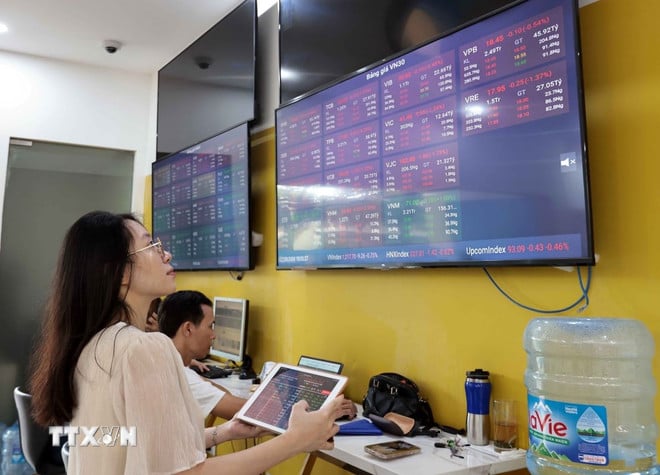
Customers transact at a securities company. (Photo: Tran Viet/VNA)
However, upgrading is not the final destination. What is more important is to maintain stability and sustainable development after upgrading. In fact, some markets after being upgraded have not maintained their quality and scale, leading to being downgraded again. Therefore, our long-term goal is to build a transparent, efficient market that protects investors well and creates the most favorable conditions for economic development.
- So what are the fundamental factors that help Vietnam confidently enter the stage of completing market upgrade?
Ms. Pham Thi Thuy Linh: We have focused on four main pillars: technology infrastructure, legal framework, trading mechanism and monitoring and management capacity. Specifically, putting the new KRX trading system into operation from May 2025 is a major milestone, helping to increase processing capacity, ensure safety, transparency and open up space for the development of many new products such as pending securities trading, intraday trading, CCP mechanism (central clearing counterparty), derivative products, etc.
Legally, the Ministry of Finance has issued important circulars to address previously unsatisfactory criteria such as payment cycle (DvP) and transaction costs. At the same time, we require 100% of listed companies to disclose information in English to enhance transparency. Solutions on loosening foreign ownership ratios, reforming administrative procedures, digital transformation, protecting investors, etc. are all being implemented synchronously to create a solid foundation for the stock market to develop sustainably and meet international standards.
- The issue of foreign ownership ratio is attracting much attention. Can you share more about the reform orientation in this area?
Ms. Pham Thi Thuy Linh: The foreign ownership ratio is an important factor in the upgrading assessment of international organizations such as MSCI. Currently, many domestic enterprises have low foreign ownership ratios, even 0%, even though they do not operate in industries with limited access.
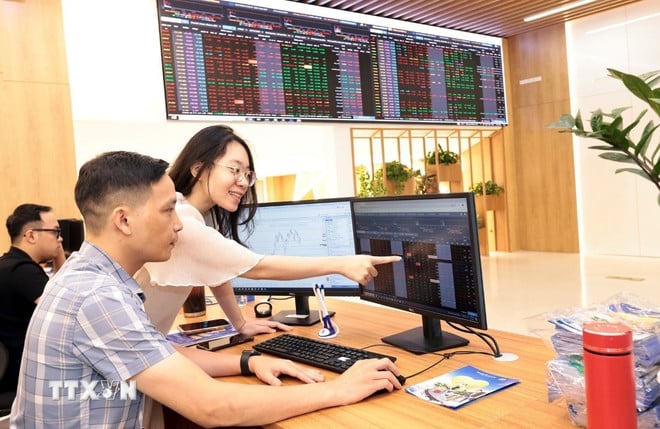
Customers trading stocks. (Photo: Tran Viet/VNA)
We will coordinate with ministries and sectors to review the list of industries, aiming to expand the scope for foreign investors to participate, except for industries related to security and defense. At the same time, enterprises also need to proactively adjust their business licenses, focusing on key industries, thereby increasing the foreign ownership ratio, attracting capital and improving management capacity.
The draft amendment to Decree No. 155/2020/ND-CP of the Government detailing the implementation of a number of articles of the Securities Law is being finalized in the direction of requiring enterprises to clearly disclose the ownership ratio of foreign investors, while abolishing the provision for the General Meeting of Shareholders to decide on this ratio. The amendment aims to create more favorable conditions for international capital to access the Vietnamese market, while enhancing transparency and conforming to international practices. This is an important reform step, contributing to perfecting the legal framework, supporting the stock market to upgrade and develop sustainably.
- Currently, the development of stock supply, especially from FDI enterprises and state-owned enterprises, is receiving attention. What is your assessment of this prospect?
Ms. Pham Thi Thuy Linh: To create a deep and stable market, it is necessary to ensure a balance between supply and demand. Currently, the scale and quality of goods on the market are not large, so it is necessary to list more enterprises with converted FDI origin and equitized state-owned enterprises that meet the listing conditions. This not only helps increase the supply of quality stocks, but also improves business performance, creating attractiveness to foreign investors.
The integration of IPO (initial public offering) with listing has also been institutionalized, helping cash flow circulate quickly, increasing the attractiveness of the primary and secondary markets. We will continue to review and amend regulations to encourage businesses to participate in listing, while building new market segments such as carbon credit exchanges, capital markets for startups... in line with the orientation of sustainable development.
- Can you share more about the role of technology in supporting the completion of market upgrade?
Ms. Pham Thi Thuy Linh: Technology is an important foundation in the stock market development strategy. The operation of the KRX system has helped the Vietnamese market enter a new phase in terms of transaction quality, enhanced processing capacity, ensuring safety, efficiency and transparency. This is one of the key requirements for rating organizations to evaluate the Vietnamese market to meet standards.
In addition, the new technology system also helps expand the space for developing new products such as pending securities transactions, intraday transactions, new derivative products, more transparent corporate bonds and moving towards implementing the central clearing counterparty (CCP) mechanism for the entire market.
We are also promoting the development of an open, transparent data ecosystem, ensuring that all market participants have access to complete, accurate and timely information. This is the foundation for improving monitoring and management capacity and creating conditions for investors, especially international institutional investors, to have confidence in the Vietnamese market.
- What do you expect from international investors' reaction to these reforms?
Ms. Pham Thi Thuy Linh: We have received many positive responses from international investors, especially after operating the KRX system and implementing legal reforms. Many large investment funds in the US, Europe and Asia highly appreciate the potential of the Vietnamese market, in terms of economic growth rate, political stability and level of institutional reform.
Organizing investment promotion conferences in international financial centers also helps us better understand investors' expectations, while affirming Vietnam's image as a dynamic, strongly reformed and integration-ready market. Reforms in foreign ownership, transaction mechanisms, information disclosure, investor rights protection, etc. are all bright spots recognized by the international community.
- Do you have any message to send to domestic businesses and investors in the context of preparing to complete the upgrade?
Ms. Pham Thi Thuy Linh: I think this is an important time for every business, investor, and securities company to improve their capacity, standardize operations, and improve transparency and governance quality. Upgrading not only creates opportunities for foreign capital but also requires the development of a stronger and more professional domestic market.
Enterprises actively participating in the capital market, providing transparent information and standardizing business operations will contribute significantly to attracting investors and improving market quality; securities companies need to improve service quality and standardize processes to better support domestic and foreign investors.
With the consensus and determination of the entire system, on the part of the State Securities Commission, we expect Vietnam to not only successfully upgrade its ranking but also build a sustainably developed stock market, an effective capital mobilization channel for the economy and an attractive destination for global investors.
- Thank you very much!. /.
Source: https://htv.com.vn/nang-hang-thi-truong-chung-khoan-viet-nam-khong-phai-la-dich-den-cuoi-cung-222250804181335781.htm


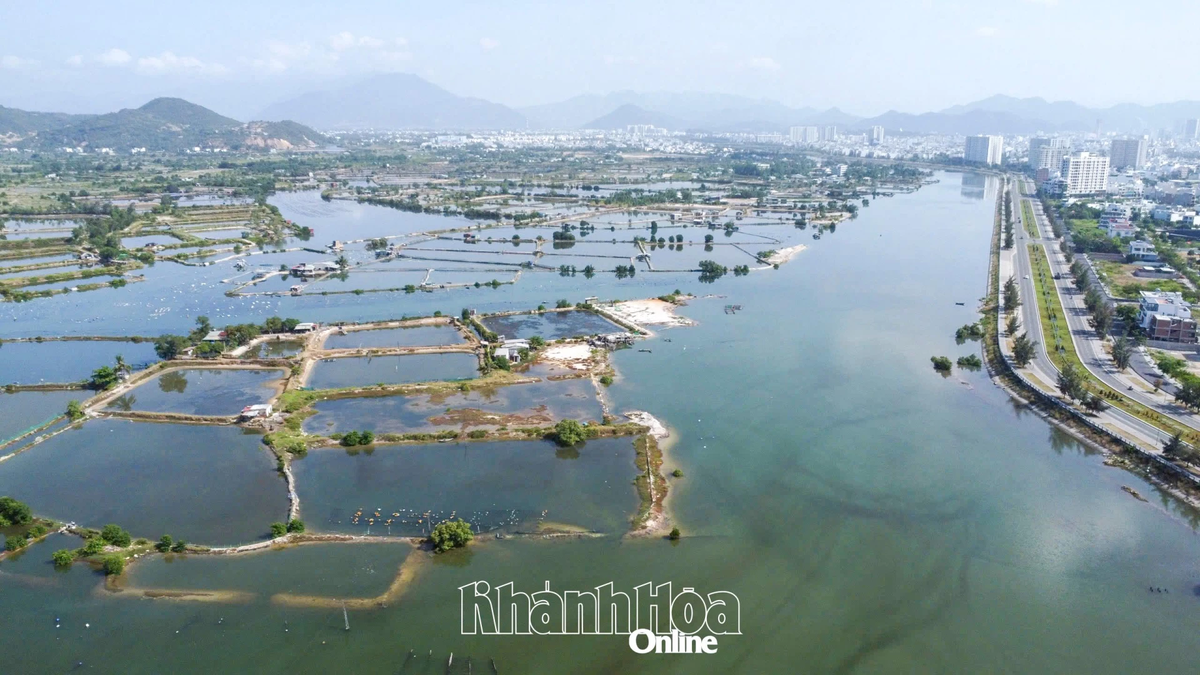



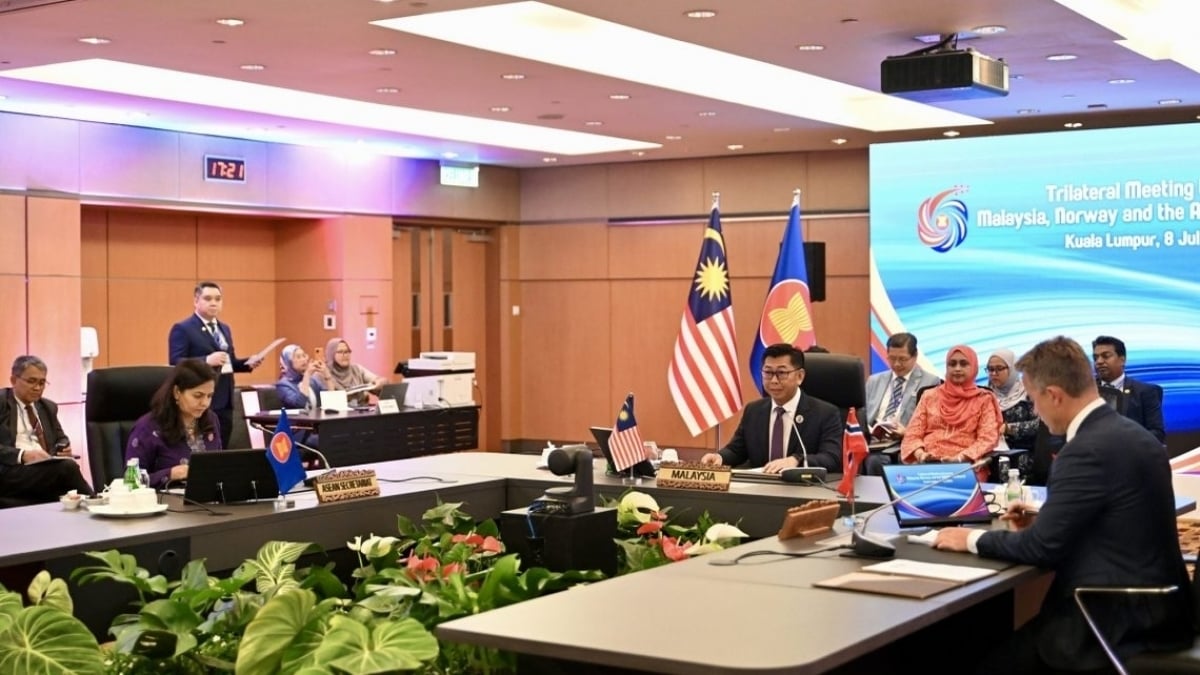



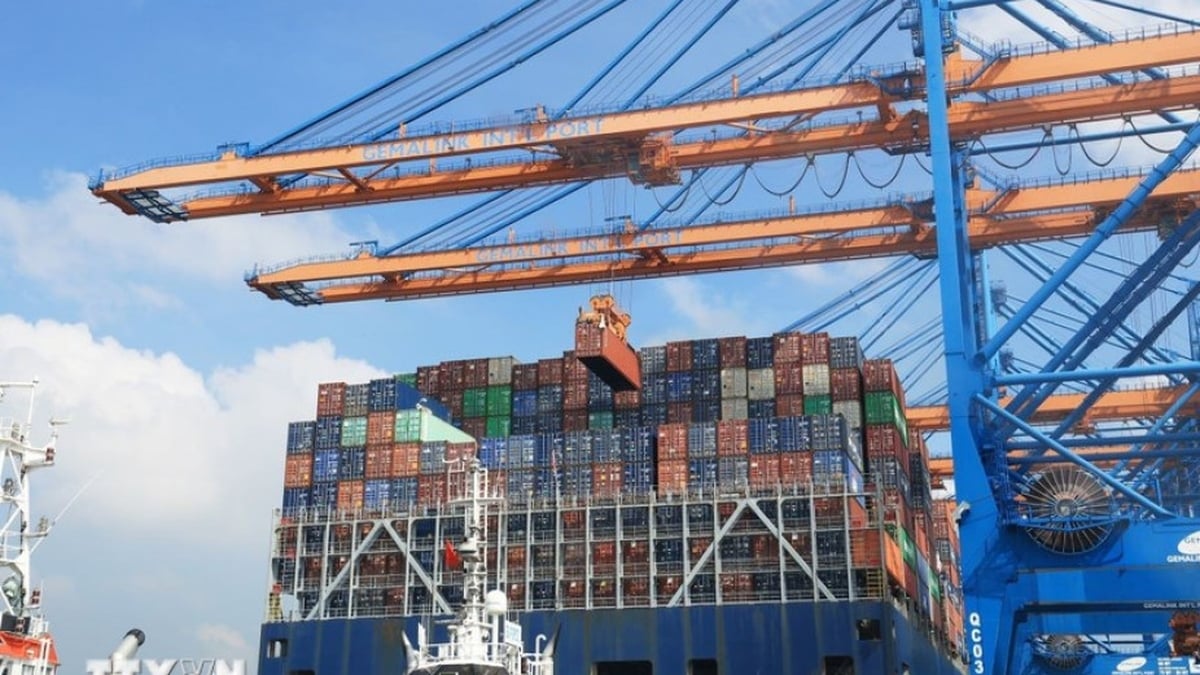












































![[Maritime News] Two Evergreen ships in a row: More than 50 containers fell into the sea](https://vphoto.vietnam.vn/thumb/402x226/vietnam/resource/IMAGE/2025/8/4/7c4aab5ced9d4b0e893092ffc2be8327)



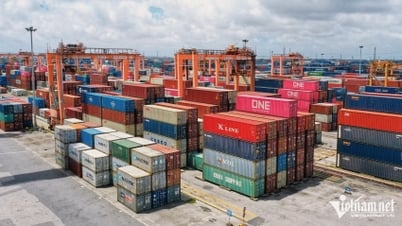




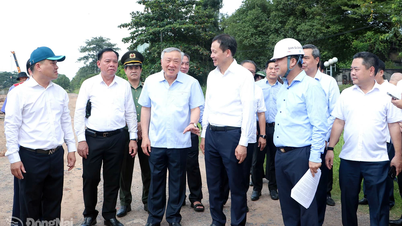









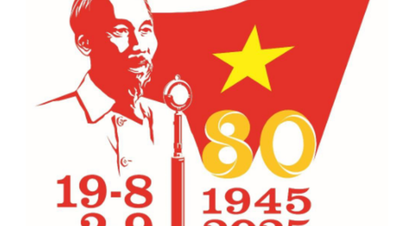






















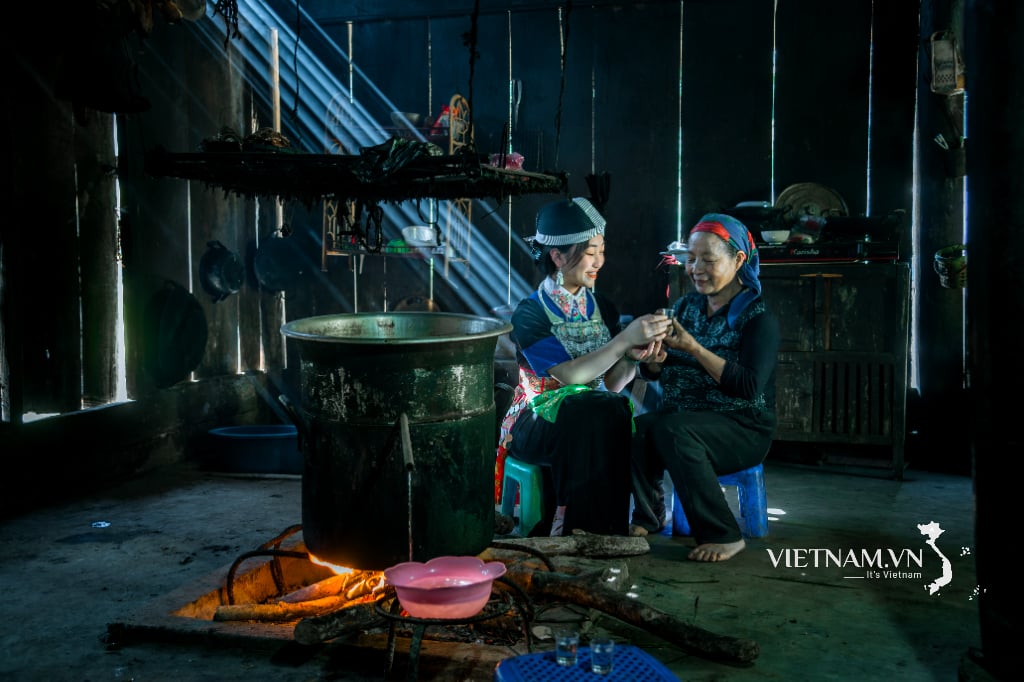
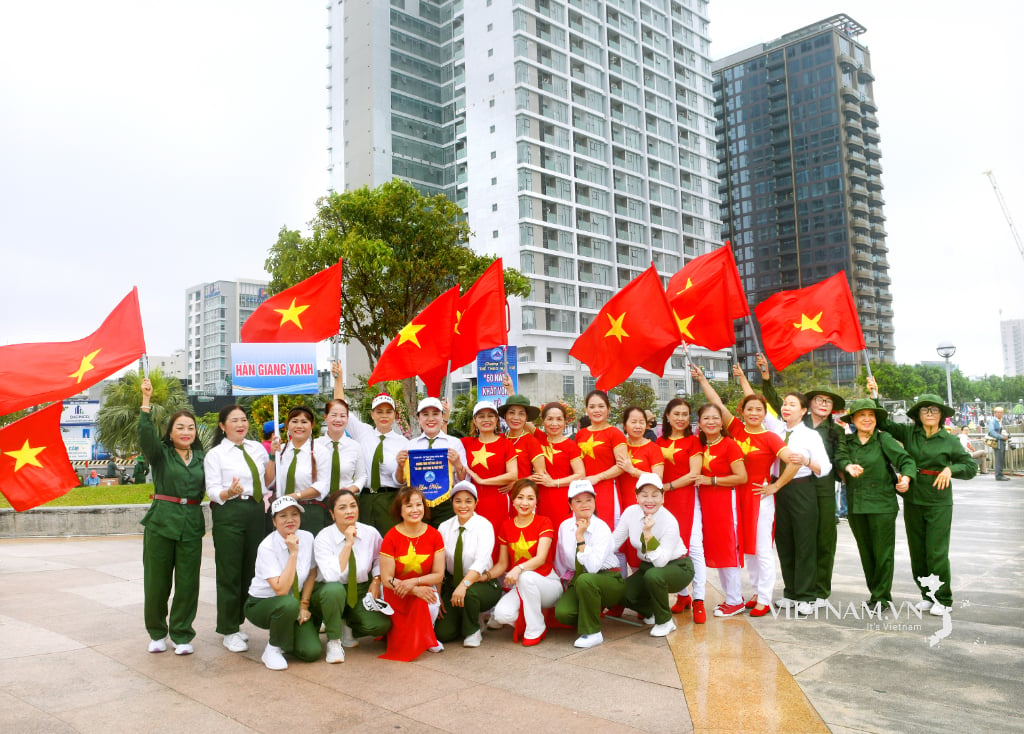

Comment (0)